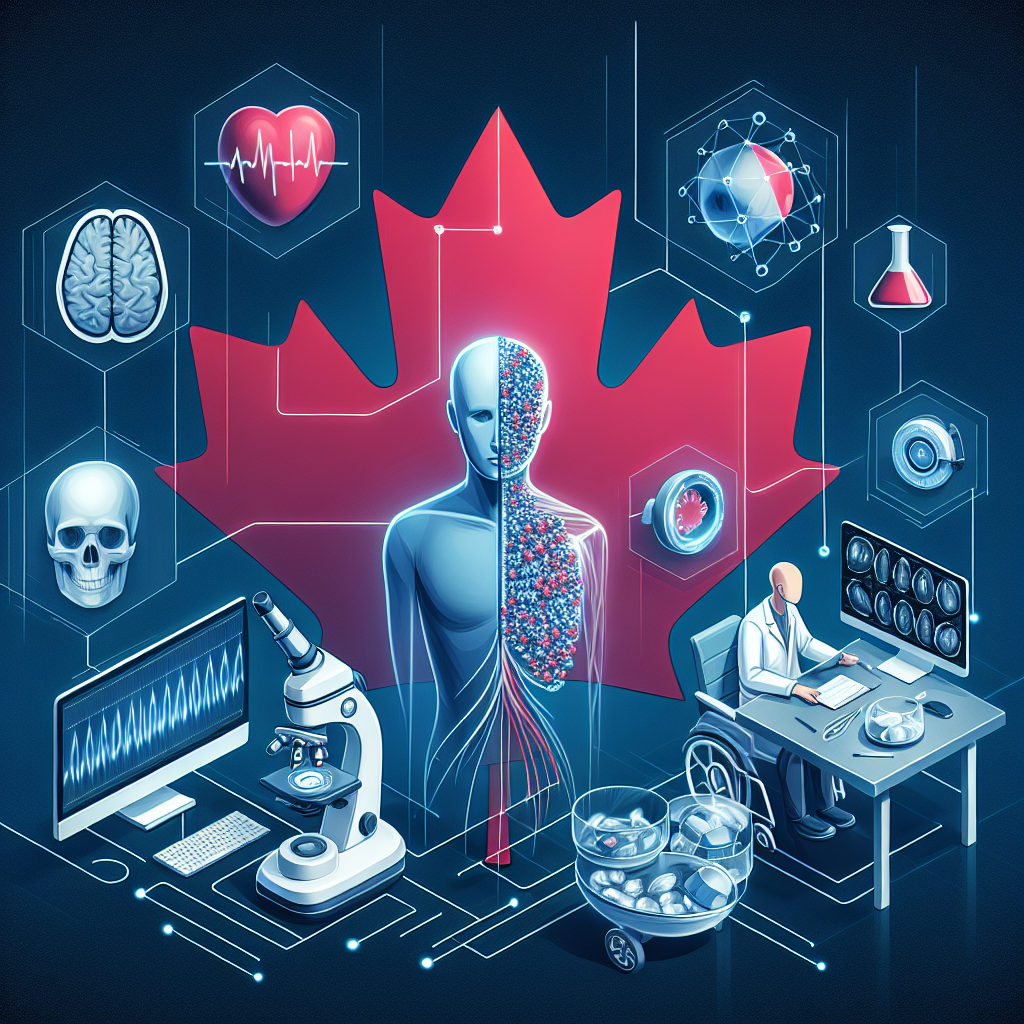===
The impact of AI on Canadian healthcare diagnostics in 2024 is nothing short of revolutionary. As healthcare professionals grapple with the overwhelming demands of accurate and timely diagnostics, the integration of artificial intelligence is emerging as a beacon of hope. The frustrations of misdiagnoses or delayed evaluations can lead to dire consequences for patients and healthcare systems alike. However, with AI’s transformative capabilities, the landscape of diagnostics is shifting, promising improved accuracy and efficiency that could redefine patient care across Canada.
The Impact of AI on Diagnostic Accuracy in Canada’s Healthcare
The integration of artificial intelligence into Canada’s healthcare diagnostics landscape is reshaping the accuracy of diagnoses across various medical disciplines. AI algorithms are designed to analyze extensive datasets, drawing upon millions of diagnostic records to identify patterns that may elude human practitioners. In an era where time is of the essence, AI’s ability to swiftly process and interpret complex medical data empowers healthcare professionals to make informed decisions more quickly. This is particularly vital in areas such as radiology, where AI tools can assist in detecting anomalies in imaging studies with a precision that rivals seasoned specialists.
Furthermore, the continuous learning capability of AI models ensures that they evolve with new data over time. As these systems are exposed to more cases, their diagnostic accuracy improves, leading to fewer false positives and negatives. This enhancement not only improves patient outcomes but also reduces the strain on healthcare resources. In Canadian hospitals, where every second counts, AI-driven diagnostics can mean the difference between timely treatment and detrimental delays. This sophisticated approach to accuracy not only bolsters trust in healthcare systems but also addresses the growing concern of diagnostic errors that can have serious repercussions.
However, the integration of AI does present challenges that require careful navigation. There is a significant need for regulatory frameworks that ensure AI tools are safe, effective, and ethically sound. As AI technologies become more prevalent, training and education for healthcare professionals about these tools are crucial. By fostering an environment where healthcare providers are comfortable using AI-assisted diagnostics, Canada can maximize the potential of this technology while safeguarding patient care standards.
Revolutionizing Patient Care: AI Innovations in Diagnostics
AI’s innovations in diagnostics are not just about enhanced accuracy; they are fundamentally transforming the patient care experience. One of the most promising advancements is the use of AI-powered chatbots and virtual assistants that streamline patient interactions. These technologies can perform initial assessments based on patient-reported symptoms, guiding them toward appropriate care pathways. By triaging cases and providing immediate, personalized feedback, AI reduces wait times and enhances the overall patient experience, a crucial factor in today’s fast-paced healthcare environment.
Moreover, the deployment of AI in telemedicine is revolutionizing how Canadian patients access healthcare services. With the rise of remote consultations, AI systems can analyze patient data and provide real-time insights during virtual appointments. This not only equips healthcare providers with critical information but also empowers patients to take an active role in their health management. The result is a healthcare model that is more responsive and tailored to individual needs, thus improving patient satisfaction and health outcomes.
Beyond patient interactions, AI innovations are improving the management of chronic illnesses such as diabetes and cardiovascular diseases. By utilizing predictive analytics, healthcare systems can identify patients at risk of deterioration and intervene proactively. This shift from reactive to preventive care has the potential to significantly reduce hospital admissions and improve quality of life for patients. As AI continues to evolve, it offers the promise of a future where healthcare is not just about treating diseases but preventing them through smart, data-driven approaches.
===
The impact of AI on Canadian healthcare diagnostics in 2024 represents a profound shift toward precision, efficiency, and enhanced patient care. As innovations continue to unfold, the potential for AI to redefine diagnostic practices is vast. By embracing these advancements, healthcare providers can not only improve diagnostic accuracy but also transform the patient experience into one that is proactive and personalized. As we look to the future, the integration of AI in diagnostics is poised to play an essential role in overcoming the challenges faced by healthcare systems, ultimately elevating the standard of care for all Canadians. Engaging with these technologies today is a critical step toward a healthier tomorrow—let’s embark on this journey together.
Exploring 2024’s Innovations in Remote Patient Monitoring in CanadaEnhancing Cybersecurity Protocols in Canada’s 2024 Healthcare SystemExploring Blockchain Applications in Canadian Healthcare 2024Relevant LinkRelevant LinkRelevant LinkManaging Degenerative Disc Disease: The Role of YogaSubmitting Your Web Wrapped Curio: A Step-by-Step GuideStrategic Hiding Spots in Life is Strange Pool SceneRelevant LinkRelevant LinkRelevant Link
